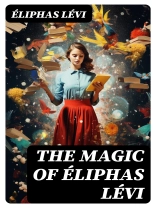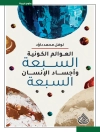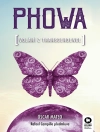In ‘The Magic of Éliphas Lévi, ‘ the renowned 19th-century occultist, mystic, and author Éliphas Lévi offers a profound exploration of the intersections between magic, symbolism, and esotericism. Richly woven with philosophical insight and vivid imagery, the text is a seminal contribution to the understanding of modern magical practices, framed within the historical context of the Romantic movement’s fascination with the arcane. Lévi’s unique literary style, marked by a blend of scholarly rigor and poetic flair, invites readers into a realm where the metaphysical and the material converge, thereby illuminating the deeper truths hidden behind esoteric traditions and their correspondence with the natural world. Éliphas Lévi, born Alphonse-Louis Constant, was deeply influenced by a diverse array of intellectual currents, from the Enlightenment’s rationalism to the burgeoning spirit of Romanticism. His extensive studies in the realms of ancient history, philosophy, and religion, coupled with his own spiritual quest, shaped his perspective on the nature of magic as a transformative force. Lévi’s background as a priest and later a defrocked cleric enriched his understanding of the sacred and the profane, deeply informing his approach to the occult. ‘The Magic of Éliphas Lévi’ is highly recommended for anyone curious about the esoteric arts and the philosophical underpinnings of magic. It serves as both an essential reference for scholars and an intriguing gateway for newcomers, making it a timeless resource for those seeking to understand the intricate web of symbolism and spirituality that informs the practice of magic.
Про автора
Éliphas Lévi, born Alphonse Louis Constant (1810–1875), was a French occult author and ceremonial magician. Renowned for his influential role in the revival of Western esotericism in the nineteenth century, Lévi’s writings were pivotal in shaping the modern magical revival. His work synthesized earlier strands of magic, Kabbalah, Christian mysticism, and other esoteric traditions, creating a new and enduring vision that has continued to captivate both scholars and practitioners. His seminal work, ‘Dogme et Rituel de la Haute Magie’ (1854-1856), translated into English as ‘Transcendental Magic, its Doctrine and Ritual, ‘ lays the groundwork for his views on magic and the occult. ‘The History of Magic’ (1860) and ‘The Key of the Mysteries’ (1861) further contributed to his reputation as a pioneer of modern occult philosophy. The collection ‘The Magic of Éliphas Lévi’ includes several of his texts, bringing his esoteric thoughts to a broader audience. Lévi’s literary style is marked by its rich, often dense, metaphorical language, seeking to express intricate philosophical and mystical concepts. His legacy is seen in the way modern magical societies and beliefs systems, such as Wicca and Thelema, have drawn from his theories on the nature of magic and the use of magical symbols.












